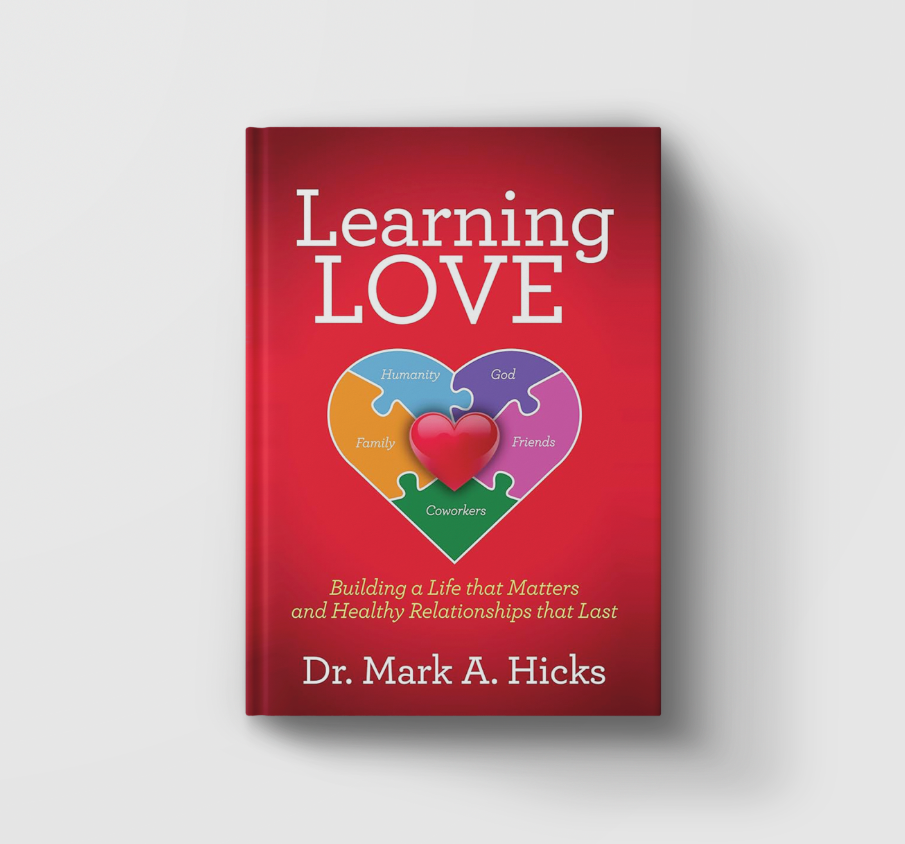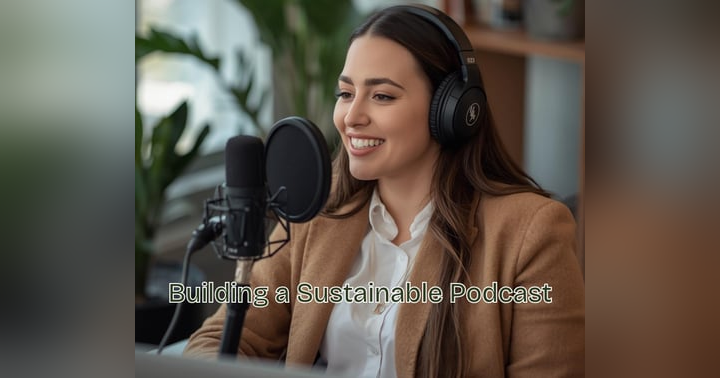
Let's dive into the five essential components of love as outlined by Dr. Mark Hicks: Grief, Emotion, Practicality, Acceptance, and Passion. These components, when understood and applied, can dramatically improve the quality of your relationships and your overall well-being. We’ll explore each of these components in detail, providing insights and practical advice on how to integrate them into your life. This discussion is a deeper dive into the concepts discussed in my recent podcast episode, "Dr. Mark Hicks on Learning Love and Rebuilding Relationships." We were able to touch on these topics, but I wanted to provide a more in-depth look here on the blog. I hope you find this blog post helpful and that it inspires you to cultivate healthier, more fulfilling connections in your life.
Love as a Learnable Skill
For many, love is viewed as an elusive emotion, a feeling that either happens or doesn't. However, Dr. Mark Hicks challenges this notion by presenting love as a learnable skill. This perspective shifts the power back to the individual, emphasizing that we can actively cultivate and improve our capacity for love. Just as we learn to read, write, or play an instrument, we can also learn to love more effectively.
The idea that love is a skill means that it requires intentional effort, practice, and a willingness to learn from our experiences. It involves understanding the various components that make up healthy relationships and actively working to incorporate them into our interactions. This approach acknowledges that love is not solely based on feelings but also on conscious choices and actions.
By viewing love as a skill, we can break free from the passive mindset that leaves us at the mercy of our emotions. Instead, we can take an active role in shaping our relationships and creating meaningful connections with others. This perspective empowers us to build stronger, more fulfilling relationships that contribute to our overall well-being.
Meet Dr. Mark Hicks
Dr. Mark Hicks is a counselor, minister, speaker, and the author of "Learning Love: Building a Life That Matters and Healthy Relationships That Last." With a rich background in ministry, therapy, and personal experience navigating both healthy and toxic relationships, Dr. Hicks is uniquely positioned to offer profound insights into the nature of love. He is passionate about teaching love as a learnable skill and has dedicated his career to helping others build healthier, more fulfilling relationships.
Dr. Hicks hosts the "Learning Love Podcast" and recently launched the Learning Love Foundation, a nonprofit dedicated to promoting relational health through education and workshops. His work is grounded in the belief that love is not merely a feeling but a set of skills that can be learned and practiced. Through his books, podcasts, and workshops, Dr. Hicks provides practical tools and emotional insights to help people build relationships that truly matter.
Dr. Hicks' approach to love is both compassionate and pragmatic, emphasizing the importance of self-awareness, emotional intelligence, and intentional action. His work resonates with people from all walks of life who are seeking to improve their relationships and cultivate deeper connections. His insights and guidance offer a roadmap for building a life filled with meaningful, loving relationships.
The 5 Core Components of Love
Dr. Mark Hicks identifies five core components of love that are essential for building healthy and fulfilling relationships: Grief, Emotion, Practicality, Acceptance, and Passion. These components work together to create a balanced and sustainable foundation for love. Understanding and integrating these components into your life can transform your relationships and enhance your overall well-being.
Each component plays a unique role in the dynamics of love. Grief allows us to keep our hearts open after experiencing pain, while Emotion enables us to express our feelings in healthy and constructive ways. Practicality involves setting boundaries and making decisions that support the well-being of the relationship. Acceptance fosters a sense of self-love and unconditional regard for others, and Passion brings joy, excitement, and fun into the relationship.
By examining each of these components in detail, we can gain a deeper understanding of what it takes to cultivate healthy and lasting love. The following sections will explore each component individually, providing practical tips and insights on how to integrate them into your life.
Grief: Keeping Your Heart Open After Pain
Grief is often associated with loss and sadness, but Dr. Mark Hicks emphasizes its crucial role in keeping our hearts open after experiencing pain. Grief is the process of acknowledging and processing emotional wounds, allowing us to heal and move forward without closing ourselves off to future relationships. Without grief, we risk becoming emotionally guarded, preventing us from fully engaging in love.
Allowing yourself to grieve means acknowledging your pain, sadness, and disappointment. It involves recognizing the impact of past hurts on your present self and giving yourself permission to feel those emotions fully. This process can be uncomfortable, but it is essential for healing and growth.
To effectively grieve, consider these steps:
- Acknowledge Your Feelings: Recognize and validate your emotions. Don't suppress or deny your pain.
- Allow Yourself to Cry: Tears are a natural way to release emotional tension.
- Talk to Someone: Share your feelings with a trusted friend, family member, or therapist.
- Engage in Self-Care: Take care of your physical and emotional needs by getting enough sleep, eating well, and engaging in activities that bring you joy.
- Practice Forgiveness: Forgiving yourself and others can help release resentment and move forward.
By embracing grief as a necessary part of healing, you can keep your heart open and create space for new, loving relationships. Remember, grief is not a sign of weakness but a testament to your capacity for love and connection.
Emotion: Expressing Feelings in Healthy Relationships
Emotion is the lifeblood of healthy relationships. Expressing your feelings openly and honestly fosters intimacy, understanding, and connection. However, it's essential to express emotions in a way that is constructive and respectful. Suppressing emotions or expressing them in a volatile manner can damage relationships and create distance.
Expressing emotions effectively involves:
- Identifying Your Feelings: Take the time to understand what you're feeling. Labeling your emotions can help you communicate them more clearly.
- Choosing the Right Time and Place: Find a calm and private setting to discuss your feelings. Avoid expressing emotions when you're overly tired, stressed, or distracted.
- Using "I" Statements: Express your feelings from your perspective without blaming or accusing the other person. For example, say "I feel hurt when..." instead of "You always make me feel..."
- Listening Actively: Pay attention to the other person's response and try to understand their perspective.
- Seeking Support: If you struggle to express your emotions, consider seeking guidance from a therapist or counselor.
By developing your emotional intelligence and practicing healthy emotional expression, you can create stronger, more fulfilling relationships. Remember, emotions are a natural part of the human experience, and expressing them authentically can deepen your connection with others.
Practicality: Setting Boundaries in Relationships
Practicality in relationships involves setting boundaries and making decisions that support the well-being of both individuals. Boundaries are essential for maintaining healthy relationships because they protect your emotional, physical, and mental space. Setting boundaries helps prevent resentment, burnout, and codependency.
To set effective boundaries:
- Identify Your Needs: Determine what you need to feel safe, respected, and valued in the relationship.
- Communicate Clearly: Express your boundaries clearly and assertively. Use "I" statements to communicate your needs without blaming the other person.
- Be Consistent: Enforce your boundaries consistently. If you allow others to violate your boundaries, they will likely continue to do so.
- Respect Others' Boundaries: Recognize and respect the boundaries of others. Healthy relationships involve mutual respect and understanding.
- Be Prepared to Say No: Saying no is a crucial part of setting boundaries. Don't be afraid to decline requests that compromise your well-being.
Setting boundaries can be challenging, especially in close relationships. However, it is essential for maintaining your emotional health and building sustainable, fulfilling connections. Remember, boundaries are not about controlling others but about taking care of yourself.
Acceptance: Loving Yourself and Others
Acceptance is the foundation of unconditional love. It involves loving yourself and others for who you are, flaws and all. Acceptance doesn't mean condoning harmful behavior but rather recognizing the inherent worth and dignity of every individual. It fosters a sense of compassion, empathy, and understanding.
To cultivate acceptance:
- Practice Self-Compassion: Treat yourself with the same kindness and understanding that you would offer to a friend.
- Challenge Negative Self-Talk: Identify and challenge negative thoughts and beliefs about yourself. Replace them with positive affirmations.
- Focus on Strengths: Recognize and celebrate your strengths and accomplishments.
- Embrace Imperfection: Accept that you are not perfect and that making mistakes is a natural part of the human experience.
- Practice Empathy: Try to understand the perspectives and experiences of others.
Acceptance is not always easy, especially when dealing with difficult people or challenging situations. However, by practicing acceptance, you can cultivate a more compassionate and loving attitude towards yourself and others. This can lead to deeper, more meaningful connections and a greater sense of inner peace.
Passion: Rediscovering Joy and Fun
Passion brings joy, excitement, and fun into relationships. It's about rediscovering the spark that ignites connection and keeping the relationship vibrant and engaging. Passion can manifest in various ways, from physical intimacy to shared hobbies and adventures.
To reignite passion in your relationships:
- Schedule Quality Time: Make time for activities that you both enjoy.
- Try New Things: Step outside of your comfort zone and try new experiences together.
- Express Affection: Show your affection through physical touch, words of affirmation, and acts of service.
- Communicate Openly: Talk about your desires and fantasies. Be open to exploring new possibilities.
- Prioritize Intimacy: Make intimacy a priority in your relationship. Carve out time for physical and emotional connection.
Passion is not just about romance; it's about bringing joy and excitement into your life and sharing it with others. By prioritizing fun and adventure, you can keep your relationships fresh and vibrant.
Breaking Free from Dysfunctional Patterns
Many of us grew up in environments where healthy love wasn't modeled. This can lead to dysfunctional patterns in our relationships. Breaking free from these patterns requires self-awareness, a willingness to challenge old beliefs, and a commitment to creating healthier relationship dynamics.
To break free from dysfunctional patterns:
- Identify Your Patterns: Reflect on your past relationships and identify any recurring patterns of behavior.
- Understand the Root Causes: Explore the underlying reasons for these patterns. What needs are you trying to meet? What fears are you trying to avoid?
- Challenge Your Beliefs: Challenge the beliefs that support these patterns. Are they based on reality or on outdated assumptions?
- Seek Support: Work with a therapist or counselor to process your experiences and develop healthier coping mechanisms.
- Practice New Behaviors: Intentionally practice new behaviors that align with your values and goals.
Breaking free from dysfunctional patterns is a journey that requires patience, perseverance, and self-compassion. By becoming aware of your patterns and committing to change, you can create healthier, more fulfilling relationships.
The Importance of Therapy
Therapy can be a valuable resource for anyone seeking to improve their relationships and overall well-being. A therapist can provide a safe and supportive space to explore your emotions, identify patterns, and develop healthier coping mechanisms. Therapy can also help you heal from past traumas and build stronger, more resilient relationships.
Many people view therapy as a sign of weakness, but it is actually a sign of strength. Seeking help is an act of self-care that demonstrates a commitment to personal growth and well-being. Whether you're struggling with relationship issues, anxiety, depression, or other mental health challenges, therapy can provide the support and guidance you need to thrive.
If you're considering therapy, research different therapists and find someone who is a good fit for your needs. Don't be afraid to ask questions and be open about your goals for therapy. With the right therapist, you can gain valuable insights and tools to improve your life and relationships.
Loving God and Understanding Your Divine Value
Dr. Mark Hicks emphasizes the importance of loving God and understanding your divine value. This spiritual dimension of love can provide a sense of purpose, meaning, and connection that transcends human relationships. Believing in a higher power and recognizing your inherent worth can foster self-love, compassion, and a deeper sense of connection to the world around you.
To cultivate a deeper connection with God and understand your divine value:
- Practice Gratitude: Take time each day to appreciate the blessings in your life.
- Engage in Prayer or Meditation: Connect with God through prayer or meditation.
- Study Scripture: Read and reflect on scripture to gain insights into God's love and purpose for your life.
- Serve Others: Find ways to give back to your community and make a positive difference in the world.
- Seek Spiritual Guidance: Connect with a spiritual mentor or counselor for support and guidance.
Loving God and understanding your divine value can transform your perspective on life and relationships. It can provide a sense of inner peace, strength, and purpose that empowers you to live a more meaningful and fulfilling life.
Resources and Where to Find Dr. Mark Hicks
To learn more about Dr. Mark Hicks and his work, visit his website at https://markahicks.com/. You can also listen to his podcast, "The Learning Love Podcast," and explore the Learning Love Foundation, a nonprofit dedicated to promoting relational health through education and workshops.
Dr. Hicks' book, "Learning Love: Building a Life That Matters and Healthy Relationships That Last," is available for purchase online and in bookstores. This book provides a comprehensive guide to understanding and applying the five core components of love. Be sure to check out all the amazing resources available.
Building Meaningful Connections
Building meaningful connections is essential for our happiness and well-being. By understanding and applying the five core components of love—Grief, Emotion, Practicality, Acceptance, and Passion—we can cultivate healthier, more fulfilling relationships. Remember, love is a learnable skill that requires intentional effort, practice, and a willingness to grow.
I hope that this exploration of the five core components of love has been helpful and inspiring. Remember to check out the related episode, "Dr. Mark Hicks on Learning Love and Rebuilding Relationships," for even more insights and practical advice from Dr. Mark Hicks. As always, thank you for joining me on this journey of discovery and growth. Let's continue to build meaningful connections and create a world filled with love, compassion, and understanding.










